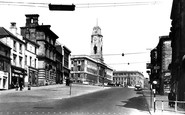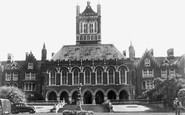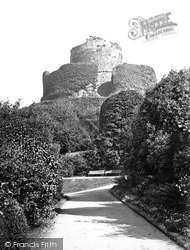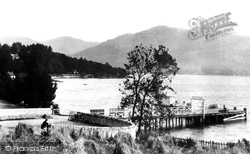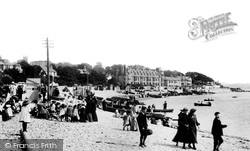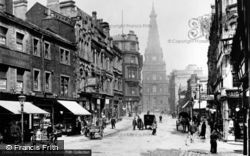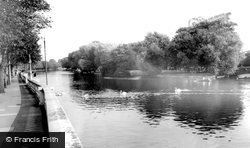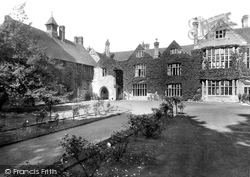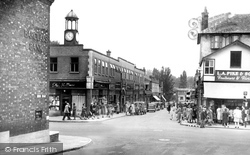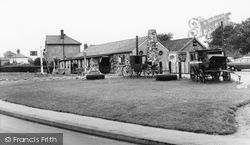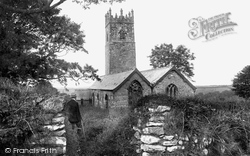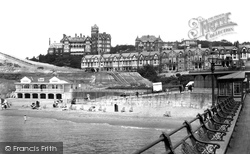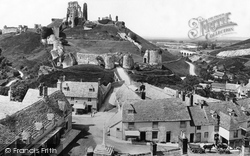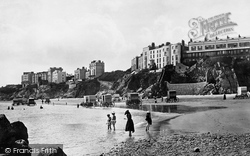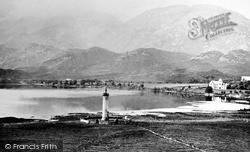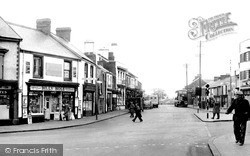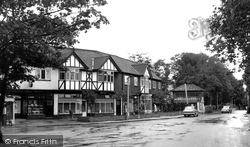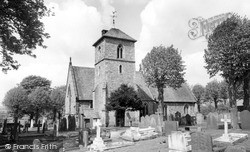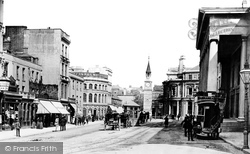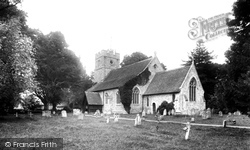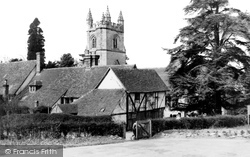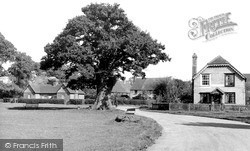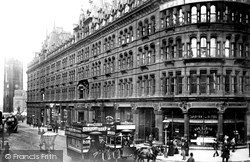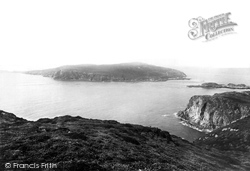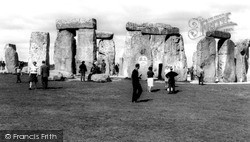Places
18 places found.
Those places high-lighted have photos. All locations may have maps, books and memories.
- Hythe, Kent
- Hythe, Hampshire
- Small Hythe, Kent
- Bablock Hythe, Oxfordshire
- Methwold Hythe, Norfolk
- Hythe, Somerset
- Hythe, Surrey
- Hythe End, Berkshire
- The Hythe, Essex
- Egham Hythe, Surrey
- West Hythe, Kent
- New Hythe, Kent
- Broad Street, Kent (near Hythe)
- Horn Street, Kent (near Hythe)
- Newbarn, Kent (near Hythe)
- Newington, Kent (near Hythe)
- Broad Street, Kent (near Hythe)
- Stone Hill, Kent (near Hythe)
Photos
360 photos found. Showing results 2,361 to 360.
Maps
101 maps found.
Books
10 books found. Showing results 2,833 to 10.
Memories
4,406 memories found. Showing results 1,181 to 1,190.
Radlett Prep
I attended Radlett Prep between 1958 and 1965. It was located in a converted three floored Edwardian house on the corner of Hillside Avenue and Aldenham Grove, and has since been converted back to a private residence. Aldenham Grove ...Read more
A memory of Radlett by
The Wire Trellis
I was something of a naughty boy back in those years: there were four of us young lads who were to bus it to Barnsley from Royston where we were barely old enough to go sampling Barnsley Bitter. If we were sixteen let alone ...Read more
A memory of Barnsley in 1965 by
Wycliffe Road
I lived in 31 Wycliffe Road just down from where the chimney sweep kept his soot. A number of films were shot in the "courts" between the streets Beaufoy Road and Bassnett Road. I moved in 1965 aged 11 not long after the area was ...Read more
A memory of Battersea by
Ramsey Abbey Grammar School 1952 1956
Oh what a school to be educated in. Academic chances and great sports facilities. I classed myself as an average student,and one who was successful in Football and Cricket, representing the school in ...Read more
A memory of Abbots Ripton in 1952 by
Fig Pudding And A Monkey
I loved Bailiff Bridge - I was there from 1943 (when I was born a Baldwin) to 1961, when I came to college in Hull and settled nearby. I loved my school, with its large shelter in the playground; I loved Miss ...Read more
A memory of Bailiff Bridge in 1949 by
Nurse Hampton
On August 13, 1961 I took up residence as a student nurse in Lindsay Smith House across from the hospital. It was the day the Berlin wall went up, and, as I recall, the day before the grouse shooting season began. I was 19 ...Read more
A memory of Virginia Water in 1961 by
Stoneham Lane Primaery School
Life started for me in 1948 in Lower Upham, we moved to Nightingale Avenue, Eastleigh around 1952. My older brother and two sisters were going to North Sonehan School so that's where I went, there were two teachers, ...Read more
A memory of Eastleigh in 1953 by
Vintage
These memories really are 1944 to about 1953. The corner shop by the church was a favourite as they used to sell home made toffee when sweets were on ration. One character I can still see was Mr White the baker being taken ...Read more
A memory of Minster in 1944 by
Countryside Memories Holidays In The 1950s
The journey from our home in North Essex to my grandparents’ home in North Derbyshire took almost a full day back in the 1950s, allowing of course for periodic stops along the way. The first, usually at ...Read more
A memory of Glossop in 1955 by
Growing Up In The Old Marchwood
I moved to Marchwood in the mid 1960s, I was not very old. We lived in an old house on the edge of the village, called Glengarriff. The old house was pulled down many years ago. I attended Marchwood Primary ...Read more
A memory of Marchwood
Captions
4,899 captions found. Showing results 2,833 to 2,856.
Launceston Castle is of the classic motte and bailey design: a high central tower stands on a mound surrounded by the bailey defences.
The loch itself was served by the steamers of the Loch Lomond Steam Boat Company, whose first ship, the 'Prince of Wales', was built at Port Glasgow in 1858.
The small huts are where vistors hired boats for by-the-hour rowing trips around the bay.
The central Victoria Hall had a splendid stone and marble floor covered in a tasteful Crossley carpet provided by the one-time Mayor John Crossley, the town's biggest carpet manufacturer.
Immediately to the right of the inlet is the Bedford Rowing Club's clubhouse; further right, by the bridge, the Moat House 1960s tower block is mercifully out of shot.
The building is mostly 16th-century, as is shown by the wonderful stone mullions dominating its frontage; the two-storey porch on the left is even older.
The greengrocer's shop is still trading, although under another name, but the most surprising aspect to modern eyes will be the evident lack of parking restrictions as evidenced by the line of parked
They were among eighty such enterprises in the county, and much of their product was utilised by the small local breweries, as well as being despatched to London.
Although it is only one and a half miles from Camelford, St Adwena's church stands very much on its own by the fringe of Bodmin Moor.
The delicate ironwork tracery of the pier seating, and a solitary bathing machine parked by the pier pavilion are further examples of Boscombe`s Victorian origins.
During the Civil War it was held for the King by the brave Lady Bankes; the castle proved impregnable until a member of the garrison turned traitor. The castle was blown up with gunpowder in 1646.
Tenby stands on a tongue of limestone rock, ending a green promontory, which is crowned by the ruins of the old castle, and is now pleasantly laid out with walks which serve at once as pier and promenade
Then Cameron of Lochiel arrived with about 700 clansmen, followed by the MacDonalds of Keppoch. The royal standard was raised, and the fight to regain the throne for the house of Stuart was on.
Although once very wealthy, the abbey was in a state of severe decline by the 1530s, and was thus an obvious target for the Dissolution in 1539.
In 1902 the L&Y board approved electrification of the line 630v DC; a partial electric service was to begin in March 1904, with a full service to be in place by the start of that year's holiday season.
The body of the church is early 14th-century, but any patina of age was effectively neutralised by the restorations of 1849 and 1857.
Ten thousand buildings were destroyed, and seventy thousand more damaged by the bombing.
Ten thousand buildings were destroyed, and seventy thousand more damaged by the bombing.
Henry Burnaby Greene, Rector, diverted the road around a pseudo-Saxon cross by the rectory gate. The lady living opposite retaliated by turning her huse into an inn and calling it the Green Man.
This little cluster of 16th- and 17th-century gabled timbered cottages, along with the pub (not visible in the photograph), was acquired in its entirety by the National Trust in 1939.
Note the beautiful weatherboarded house surrounded by the picket fence on the right. Locals sometimes call the village Lye or West?Leigh.
The triangular-shaped Victoria Buildings was erected by the corporation in 1876 occupying an area of land bounded by Deansgate, Victoria Street, and St Mary's Gate.
The Chasms were described as fissures resembling those between Lydstep Cove and Manorbier Bay in Wales, and caused by the falling in of caves.
So too were aspects of the 'alternative society', who used Stonehenge for all sorts of spiritual enlightenment or protest, as can be seen by the CND sign daubed on the stone in the centre.
Places (18)
Photos (360)
Memories (4406)
Books (10)
Maps (101)

